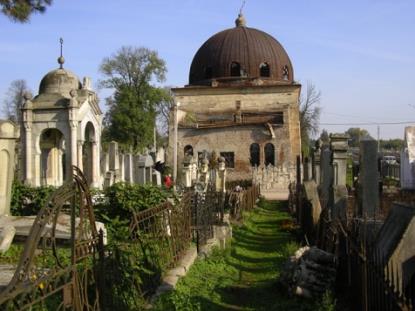
Judaism and Jewish culture in general in Ukraine are flourishing and is likely to expand further in the future, even among non-Jews, writes Viktor Yelsenkyi of the National Academy of Sciences (Kiev) in the current issue of the online journal Occasional Papers on Religion in Eastern Europe (40:6). The revival of Judaism and Jewish culture in Ukraine started shortly after the country gained independence from the former Soviet Union, but the joining of several current trends is likely to add to the Jewish growth. The country’s history of having an early Jewish population that was traumatized by pogroms and eventually the Holocaust and Communism resulted in significant migration and a disassociation between Jewish ethnicity and religion for many Ukraine Jews. That changed by the early 2000s when anti-Semitic attitudes in Ukraine society eased, migration slowed down, and a plethora of Jewish societies and schools were established, and holy sites of famous rabbis’ graves and synagogues were refurbished. As of the beginning of 2020, there were more than 300 Jewish organizations in Ukraine, with 40 percent of them belonging to the imported Hasidic Chabad  movement (even as Hasidism has deep historical roots in Ukraine). The lack of a central Jewish leadership and structure in the country leads to a more pluralistic and competitive environment (in a similar way to the Christian scene, where there is no predominant state-based Orthodox church).
movement (even as Hasidism has deep historical roots in Ukraine). The lack of a central Jewish leadership and structure in the country leads to a more pluralistic and competitive environment (in a similar way to the Christian scene, where there is no predominant state-based Orthodox church).
The high-demand Chabad has turned off the large segment of secularized post-Soviet Jews, and progressive Jewish groups have made some inroads among such a population (with about 40 communities). The estimates of Ukraine’s Jewish population at about 160,000 (consisting of core Jews, nominal ones and Israelis) is thought to be lower than it actually is by demographers and other observers. This is because an increase of Jewish life in a given city “leads to noticeable increase in the local community at the expense of those who have not previously mentioned their Jewish roots,” Yelsenkyi writes. Along with the Jewish population, “a phenomenon has emerged in Ukrainian public life which can be called intellectual or ‘cultural’ [conversion to Judaism]…where non-Jews immerse themselves into the Jewish civilization [and] Jewish culture in the broadest sense of the term: studying Jewish history, Hebrew, customs, cuisine, participating in Jewish events, etc.” A similar phenomenon of Jewish revival among non-Jews is taking place in Poland.
(Occasional Papers on Religion in Eastern Europe, https://digitalcommons.georgefox.edu/ree/vol40/iss6/7/)